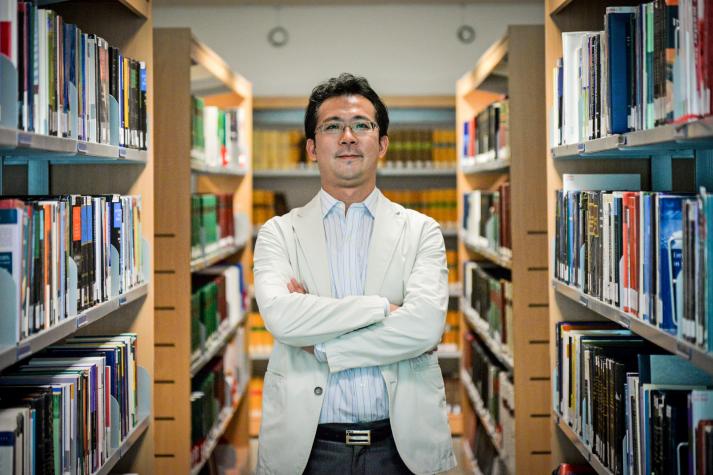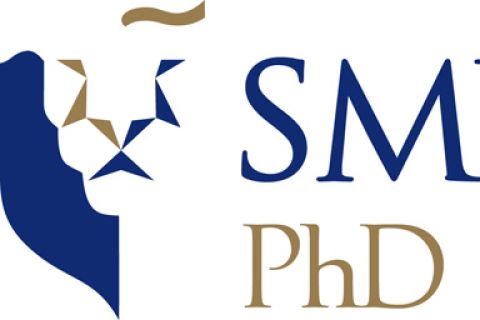
SMU Assistant Professor Christopher Chen looks at how today’s huge financial derivatives market can be better regulated for the benefit of the global economy and individual financial consumer.

Photo Credit: Cyril Ng
By Sim Shuzhen
SMU Office of Research (23 Jul 2014) – Financial derivatives have a bad reputation – experts widely agree that they played an instrumental role in precipitating the 2008 global financial crisis. At that time, a lack of regulation allowed major banks and investment funds to engage in large-scale speculation in Over-The-Counter (OTC) derivatives, and to package them into increasingly complicated financial products. Little was understood about the risks of these new products. This made them enormously unpredictable, which ultimately resulted in disastrous losses.
Nevertheless, derivatives have been around for centuries prior to these exploits. In fact, they can be useful instruments for managing financial risk. We have learnt the hard way that today's huge and complex derivatives market must be carefully regulated, but the question is: how?
Assistant Professor Christopher Chen of the Singapore Management University (SMU) School of Law studies the regulation of financial derivatives. Focusing on the legal issues associated with this often murky aspect of the economy, his research examines how markets respond to regulatory actions, so as to improve protection for financial consumers in the long run.
Assessing the impact of financial derivative regulations
In the aftermath of the 2008 crisis, many countries enacted legislation to regulate derivatives markets. To determine how effective these regulations have been, Professor Chen examines market data before and after their introduction, focusing on the reactions of various interconnected aspects of the market. Depending on the project, he may collate data from a variety of sources, including company annual reports, court judgments and information in the public domain such as the number and type of complaints filed to an arbitration centre.
Professor Chen’s primary focus is on Asian countries such as Singapore, Hong Kong, China and Taiwan. Part of his research involves surveying and comparing regulatory practices in different jurisdictions. From time to time, he looks further afield at Europe, the United Kingdom (UK) and the United States to examine the impact of regulations in different contexts.
“Frankly, we still do not know much about how financial derivatives should be regulated. The common ground is that they should be regulated. However, it is still debatable whether the current regime (imposed by G20) is sufficient, and whether there should be more competition and variety in terms of devising ways to regulate the derivatives market,” he shares.
Thus far, the major regulatory measure has been to move OTC derivatives towards centralised clearing or mandatory exchange trading. While this reduces the risk that a counterparty in the derivative contract will fail to meet payment obligations, it is unclear if this will help matters in the long term.
“Only time will tell whether current regimes will be sufficient, and hopefully we can identify potential problems as the market adapts to the new regulatory environment,” notes Professor Chen.
Improving protection for financial consumers
A major goal of Professor Chen’s research is to improve protection for ordinary financial consumers. “This is an extremely pertinent issue in Singapore and Greater China where many middle-class people suffered (and continue to suffer) from exotic structured products,” he explains.
A study that he had conducted in Taiwan focused on disputes arising from the selling of structured notes to ordinary investors. By collecting rules and court decisions from Taiwan, Singapore, Hong Kong and the UK, Professor Chen built a dataset containing information on variables such as the court, judge, type of main argument and litigation result.
By performing statistical analyses on this dataset, he was able to look at the disputes on structured notes from different perspectives, and to detect associations between different variables – for example, whether hiring an attorney would improve a plaintiff’s chances of winning. The study illustrated salient problems that were associated with selling structured products to ordinary investors, as well as the unwillingness of courts to offer solutions.
“The results could provide a basis to discuss whether existing laws are sufficient to protect investors, and to offer some policy thinking for regulators,” he notes.
Although the study was set in Taiwan, its dataset and results were applicable to research questions on other countries (for example, the chances of an investor winning a structured note dispute in Singapore versus in Taiwan), and other areas of law such as insurance disputes.
Choosing the examined life
With the support of the 2014 Della Suantio Fellowship, Professor Chen’s ongoing work aims to bridge national and jurisdictional boundaries to study financial regulations in the Asia Pacific region, such as how they play out in a local context, their interactions with each other, and how they handle the extraterritorial impact of super giants such as the US and Europe.
For Professor Chen who chose a career in academia over a potentially much more lucrative one in legal practice, research provides a sense of personal fulfilment. “Contrary to popular belief, there is quite a lot of pressure in academic life as well. However, being an academic gives me more time and space to think, digest and consider what would be best for our society – be it now or in the future,” he reflects.
There is also the opportunity to make a real and lasting difference, to which he explains: “Academics can make a huge impact on a society or country, sometimes potentially across borders. A good piece of research can have an impact for years, decades or even centuries. There is no such privilege being a lawyer.”
See More News
Want to see more of SMU Research?
Sign up for Research@SMU e-newslettter to know more about our research and research-related events!
If you would like to remove yourself from all our mailing list, please visit https://eservices.smu.edu.sg/internet/DNC/Default.aspx

